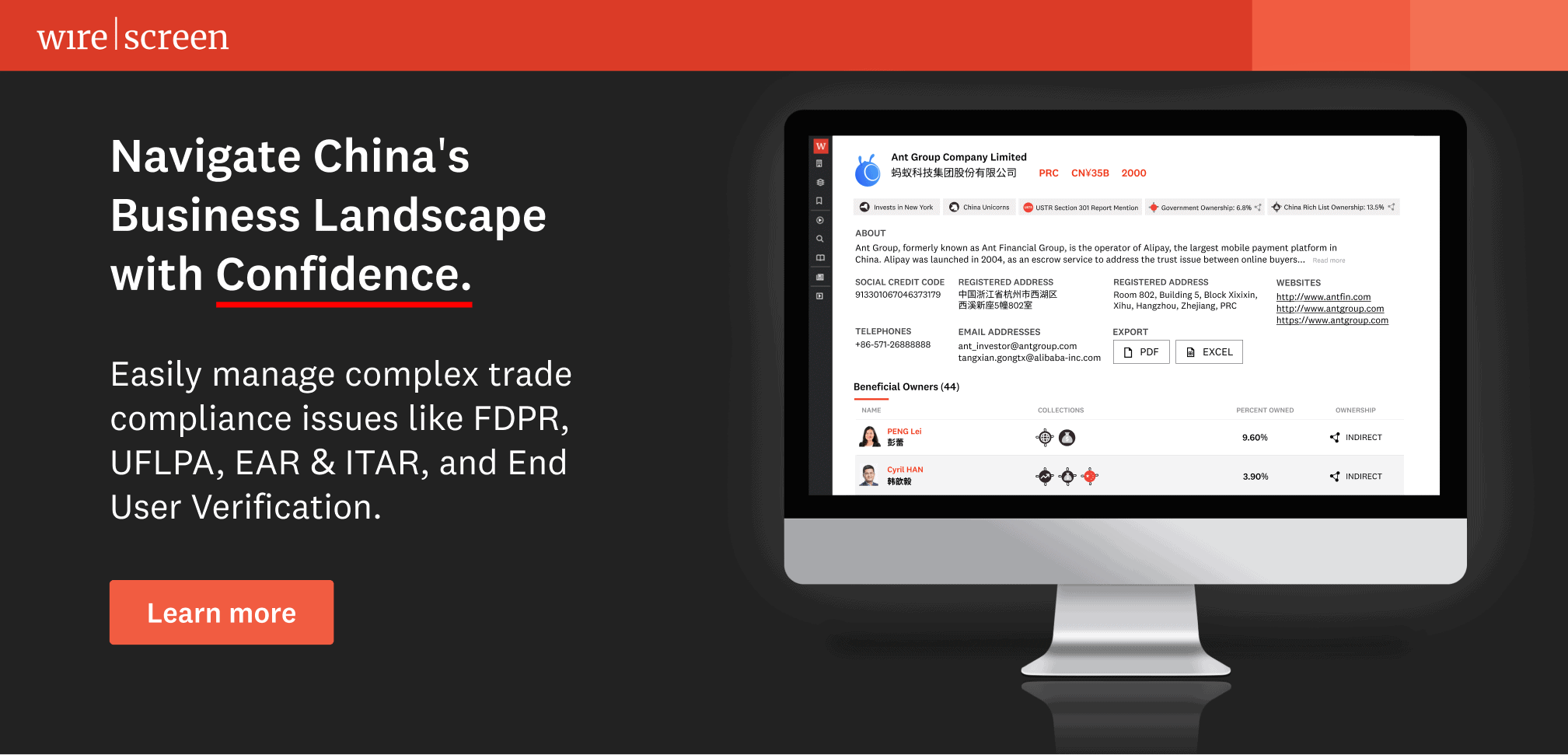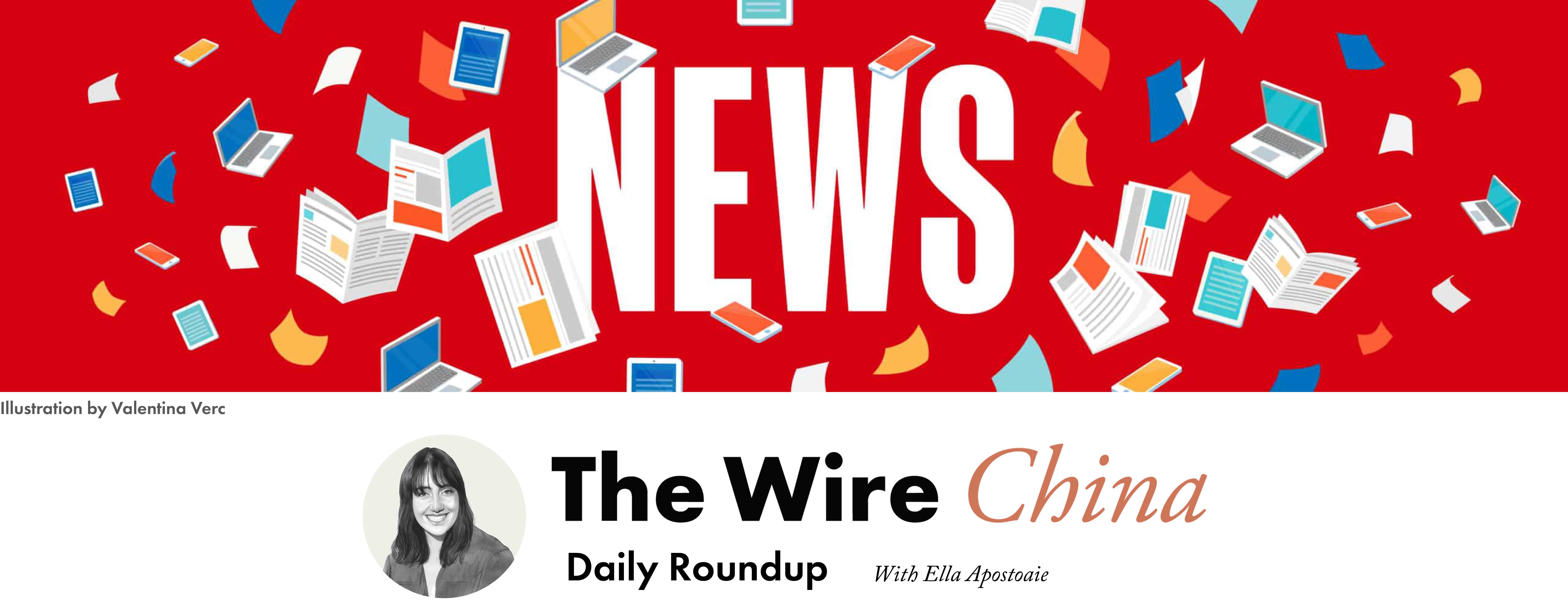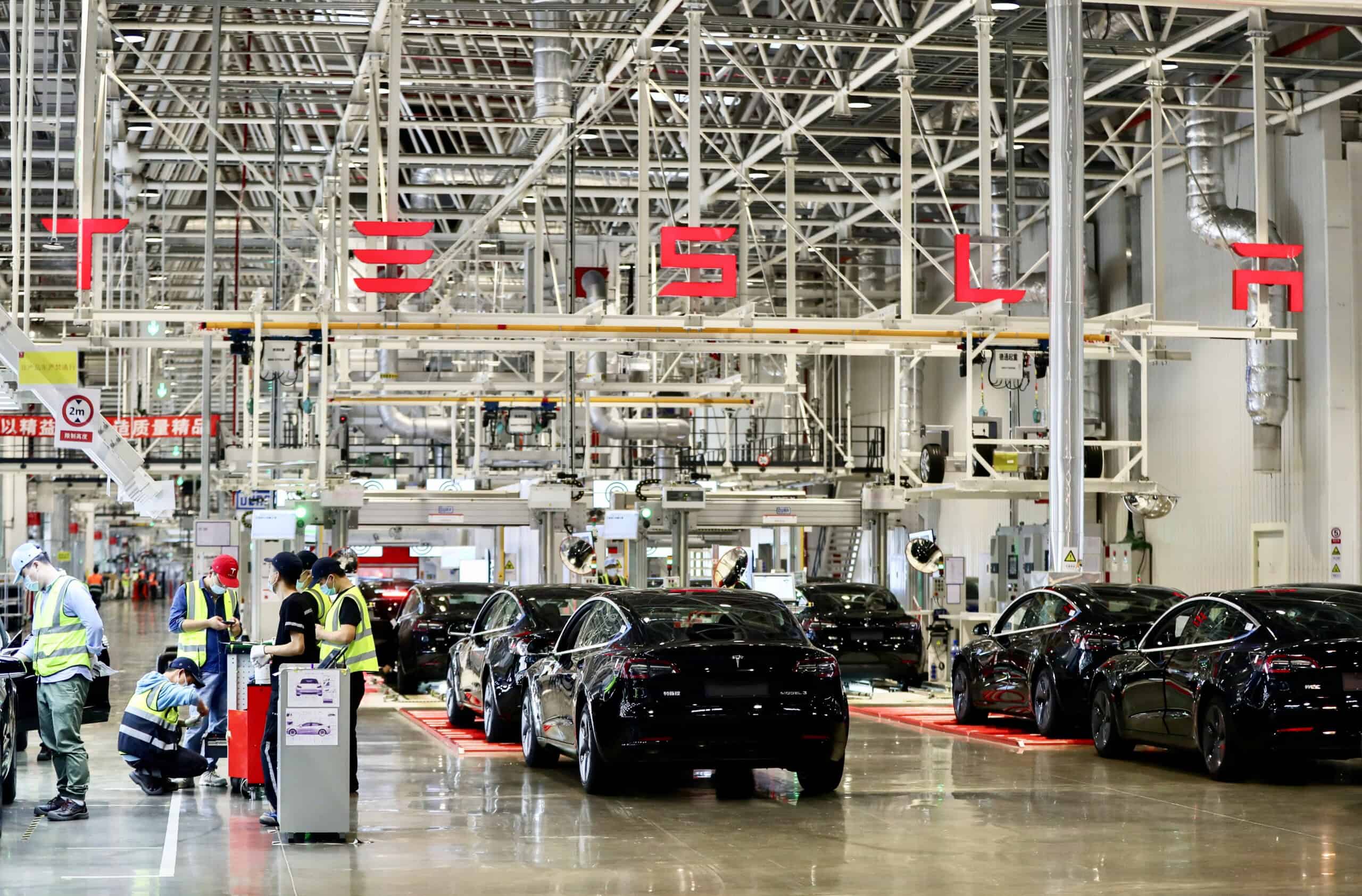Good Morning. Welcome to The Wire’s daily news roundup. Each day, our staff gathers the top China business, finance, and economics headlines from a selection of the world’s leading news organizations.
Paid subscribers automatically have this list emailed directly to their inboxes every day by 10 a.m. EST. Subscribe here.
The Wall Street Journal
- Novo Nordisk’s Wegovy Weight-Loss Drug Gets Approval in China — Blockbuster obesity drug Wegovy has been approved in China, opening the door for maker Novo Nordisk to begin selling it in the world’s second-largest economy, where the appetite for similar treatments is surging.
- Historic Moon Mission Gets China One Small Step Ahead in Space Race — A Chinese spacecraft carrying the first-ever rock samples from the far side of the moon has touched down in China.
- In Rare Rebuke, U.S. Ambassador Accuses China of Undermining Diplomacy — Beijing has been stirring up anti-American sentiment and preventing people from attending embassy events, Nicholas Burns said in an interview.
- Fashion Empire Shein Has Filed for London IPO — The confidential filing earlier in June came after U.S.-China tensions hit New York plans.
The Financial Times
- China ‘enriching global supply’ with green exports, premier says — Li Qiang pushes back at west’s complaints of overcapacity in output of EVs and lithium batteries.
- Chinese companies seek assurances from Malaysia on avoiding US tariffs — Mainland groups have shifted production to south-east Asia in order to export to America.
- Edinburgh halts deal with Taiwanese city over fears of China backlash — Proposed friendship agreement put on hold after businesses express concerns.
- Shein files confidential paperwork ahead of possible London listing — Singapore-based online fashion group is still waiting for green light from China’s regulators.
The New York Times
- China Becomes First Country to Retrieve Rocks From the Moon’s Far Side — The Chang’e-6 mission’s sample, which might hold clues about the origins of the moon and Earth, is the latest achievement of China’s lunar exploration program.
- Where Have All the Chinese I.P.O.s Gone? — Chinese companies’ stock market listings once flooded Wall Street. These days, China’s initial public offerings are in a drought.
- Supply Chain Under Strain as Houthis Intensify Red Sea Strikes — As Houthi rebels intensify strikes on vessels headed for the Suez Canal, global shipping prices are soaring, raising fears of product shortages and delays.
- Heavy Rain and Deadly Flooding in Southern China, in Photos — The city of Meizhou reported a “once-in-a-century” flood, with at least 38 people dying in one county alone.

Caixin
- Allianz Unit Buys 2% of China’s State-owned Pension Insurer — German insurance giant is first foreign investor in Guomin Pension & Insurance Co.
- Tencent’s Online Bank Gets Nod to Open Hong Kong Subsidiary — WeBank will use the new unit to provide tech services to Belt and Road Initiative countries and regions.
- China to Limit ‘Low-End’ Solar Manufacturing Capacity — Measures to slow the sector’s expansion come after industry leaders warned of overcapacity.
South China Morning Post
- Chinese premier rebuffs ‘bloc confrontation’, talks up open markets in ‘Summer Davos’ address — In a keynote address to the ‘Summer Davos’ forum, Chinese Premier Li Qiang offered a strong critique of Western trade restrictions while also pitching the country as a welcoming place for overseas firms.
- China’s expanding next-generation icebreaker fleet welcomes Jidi, its newest member — The country’s four icebreakers have made year-round scientific expeditions to the geopolitically important polar regions possible.
- China’s public sector accelerates AI adoption in 2024 as Zhipu and iFlyTek emerge as winners — 81 contracts involving the use of large language models for public projects found successful bidders in the first half of 2024, up from one a year earlier.
- China’s energy security drive rolls on as oilfield hits 100 million tonne milestone — Suizhong 36-1 oilfield in Bohai Bay is China’s largest state-owned offshore oilfield, having started production in 1993.
- Dubai-based airline Emirates seeks to expand network to 4 more cities in mainland China — President says carrier ready to provide flights ‘immediately’ but waiting for Beijing to give it green light.
Nikkei Asia
- Biden-Trump debate: Where they stand on China and Taiwan — The election outcome is sure to have a huge impact on Asia, as Biden and Trump offer sharply different visions for America’s role in the world.
- Iran presidential candidates stress China, Russia ties ahead of vote — Conservative candidates seeking closer ties to China and Russia are leading opinion polls ahead of Iran’s election, which has drawn limited interest from voters disillusioned by the country’s continued economic woes.
- China-North America flights just 20% of pre-pandemic level — Before the pandemic, U.S. and Chinese airlines each operated over 150 flights weekly between the two countries. Travel restrictions enacted in response to the coronavirus shrank that number to four per week in June 2020, Chinese media report.
Bloomberg
- Why BYD’s Wang Chuanfu Could Be China’s Version of Henry Ford — The billionaire, whose company is set to surpass Tesla as the world’s largest EV maker, is more focused than Elon Musk on producing cheap transportation for the masses.
- Nike Bets Its China Comeback on Michael Jordan’s New $1,000 High-Tops — The brand can play to local culture and luxury consumers in a way the parent company can’t.
- Huawei’s Secret Ally in the US-China Tech War: A Science Nonprofit Based in DC — A review of internal Optica corporate records shows the alliance ran far deeper than publicly known, blossoming over decades even as US-China tensions over technology soared.
- Opinion: We’ve Already Picked Decoupling’s Low-Hanging Fruit — Fragmentation is real. But there’s a long way to go before supply chains are free from an addiction to China. By Tim Culpan.
- Opinion: The US Is Learning the Wrong Cold War Lessons on China — Hoping for a repeat of history isn’t the wisest foreign-policy strategy for winning the 21st century version of the Washington-Moscow rivalry. By Minxin Pei.
Reuters
- US probing China Telecom, China Mobile over internet, cloud risks — The Biden administration is investigating China Mobile, China Telecom and China Unicom over concerns the firms could exploit access to American data through their U.S. cloud and internet businesses.
- China’s retail outlook dims after mid-year shopping festival flop — E-commerce sales decline for the first time during the so-called 618 festival that ended last week, reports said, reflecting the pressures building up on retailers who are already locked in a gruelling price war.
Other Publications
- CFR: Mobilizing Clean Energy Financing through the Multilateral Development Banks — A new paper published by the MIT Center for Energy and Environmental Policy Research (CEEPR) puts forward an ambitious agenda for innovation in clean energy finance.
- Foreign Policy: Against China, the United States Must Play to Win — Washington’s competition with Beijing should not be about managing threats—but weakening and ultimately defeating the Chinese Communist Party regime.
- The Washington Post: U.S. ‘on schedule’ in race with China to land people on moon, NASA chief says — China recently landed an uncrewed spacecraft on the moon for the fourth time, but NASA’s Bill Nelson says the U.S. will return astronauts there within a few years.
- AP: Chinese hackers have stepped up attacks on Taiwanese organizations, cybersecurity firm says — RedJuliett has targeted Taiwanese organizations in the past, but this is the first time that activity was seen at such a scale, a Recorded Future analyst said.
- The Atlantic: China May Be the Ukraine War’s Big Winner — Putin’s invasion of Ukraine has given Xi Jinping a way to stir trouble for the West and make Moscow dependent on Beijing.
- Brookings: The TikTok debacle: Distinguishing between foreign influence and interference — Washington is afraid of TikTok. More precisely, it is afraid of Beijing’s influence over TikTok via the platform’s China-based parent company ByteDance.




